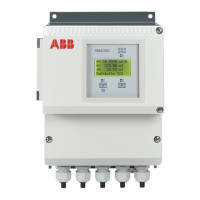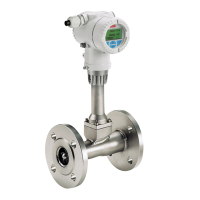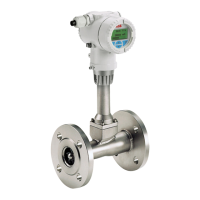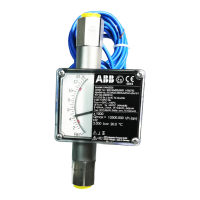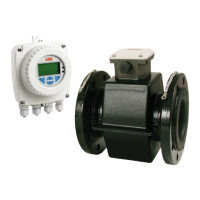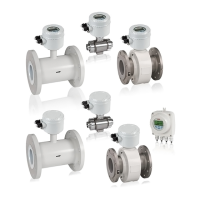Design and function
16 FSM4000 D184B140U02
2 Design and function
2.1 Measuring principle
Measurements performed by the electromagnetic flowmeter are based on Faraday’s law of
induction. A voltage is generated in a conductor when it moves through a magnetic field.
This principle is applied to a conductive fluid in the measuring tube through which a magnetic
field is generated perpendicular to the flow direction (see schematic).
The voltage induced in the fluid is measured by two electrodes located diametrically opposite
each other. This signal voltage U
E
is proportional to the magnetic induction B, the electrode
spacing D and the average flow velocity v.
Considering that the magnetic induction B and the electrode spacing D are constant values, a
proportionality exists between the signal voltage U
E
and the average flow velocity v. From the
equation for calculating the volume flowrate, it follows that the signal voltage is linearly
proportional to the volume flowrate: U
E
~ q
v
.
The induced voltage is converted by the transmitter to standardized, analog and digital signals.
G00005
1
2
3
Fig. 6: Electromagnetic flowmeter schematic
1 Magnet coil
2 Measuring tube in electrode plane
3 Signal electrode
U
E
Signal voltage
B Magnetic induction
D Electrode spacing
v Average flow velocity
q
v
Volume flow
U
E
~ vDB
qv =
v
D
4
2
U
E
~ q
v
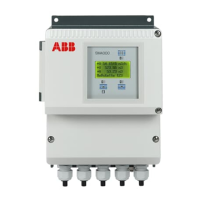
